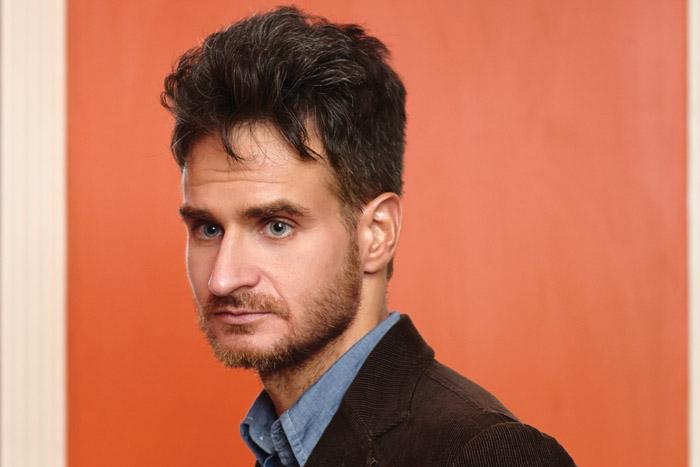Peace of Mind

Brad Heckman '89 mediates the local with the global
by Sasha Shapiro ’15
In the opening scene of the comedy Wedding Crashers, a couple navigating a nasty divorce spits insults and accusations at one another while the mediators, played by Owen Wilson and Vince Vaughn, attempt to steer the conversation in a meaningful direction. As the rhetoric grows more heated, Wilson's character interjects amiably: "I know it doesn't seem like it, but we are making progress."
After describing that scene, Brad Heckman '89 laughs and admits that, although amusing, the Wedding Crashers interpretation is inaccurate. Instead, mediation is serious business: it's an opportunity for two parties to meet, discuss and reach their own agreement with the help of the mediator—a neutral third party trained in conflict resolution. For Heckman, running the largest mediation organization in New York City is the logical result of years of traveling and a diligent commitment to providing conflict-resolution opportunities to communities in the United States and abroad.
Heckman's interests in peace studies began before he came to Dickinson in 1985. As a child, Heckman was influenced by his uncle Jim, an avid peace advocate and conscientious objector during the Vietnam War. Heckman admits that it was his uncle who taught him that there are alternate ways to serve one's community.
At Dickinson, Heckman studied political science and was motivated by class discussions on possible consequences of the Soviet Union's political and economic policies during Perestroika. "This constant conversation offered me a lot of different political viewpoints and really inspired me to see what was happening on the ground in a country that was on the verge of change," Heckman recalls. "I wanted to be part of something that was happening on the global front."
After graduation, Heckman moved to Poland to teach English at Nicholas Copernicus University. In his first two years in Europe, he witnessed peaceful protests of the Solidarity movement, as well as the dissipation of the Soviet Union. The political confusion and economic disarray after the Berlin Wall's collapse provided Heckman with the perfect platform to help struggling communities resolve their disputes peacefully and effectively.
Heckman then returned to the United States to earn a master's in international relations from Johns Hopkins University. He later worked with Ray Shonholtz, founder of Partners for Democratic Change. Heckman remembers how his mentor "dragged" him to a variety of international hotels with the sole purpose of negotiating room rates with frustrated managers. "He showed me that pretty much everything is negotiable," Heckman notes.
Together, they set up 11 mediation centers throughout the former Soviet Bloc—all of which continue to operate today. "There was just a tremendous openness to new ideas and new ways of thinking," Heckman recalls. "I was really lucky to be part of that whole environment."
This openness was vital to the operation's success: Heckman and Shonholtz focused their efforts on establishing centers that were locally operated and managed and that reflected local needs and culture. Heckman's stints in Eastern Europe were generally limited to two weeks, which was just enough time to train people in the necessary skills to sustain these new centers.
An ongoing desire to serve his own community brought Heckman back home to New York City, though, where he became senior director of mediation services and, later, vice president of Safe Horizons, the nation's leading domestic-violence victim-assistance organization.
When it became apparent that Safe Horizon's mediation program did not fit the organization's mission, Heckman founded the Peace Institute, which has grown into one of the country's leading nonprofit mediation organizations.
"In some ways, building a nonprofit organization is like having an art studio," says Heckman, who calls himself an amateur artist and incorporates his own whimsical illustrations into his mediation trainings as well as his presentations to community members and potential donors. "There's something fundamentally creative about building an organization, putting together a staff and a structure and then helping people."
Because mediation is still a relatively new concept for many, Heckman also teaches two graduate courses as an adjunct professor at New York University's Center for Global Affairs. One course, Mediation Skills for Global Affairs, explores the foundation of mediation and peace-building activities, and students learn to mediate a variety of personal and professional conflicts. His second course, How to Build Your Own NGO, teaches students the fundamentals of creating and running their own nonprofit organization. Some have launched their simulated organizations in the real world.
"I actually have to pinch myself sometimes," he says. "I'm actually doing what I really believe in and really love."
Read a first-person retrospective by Sasha Shapiro '15 on her summer internship at the Peace Institute.
Published July 24, 2013